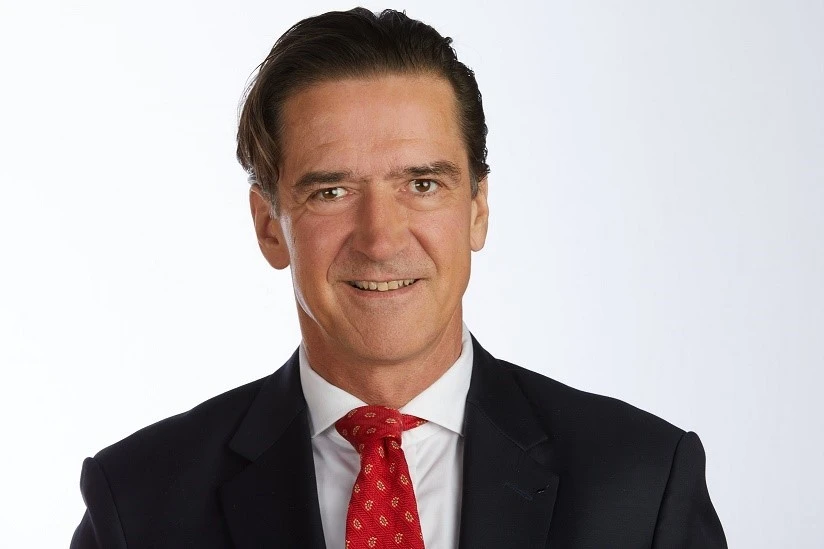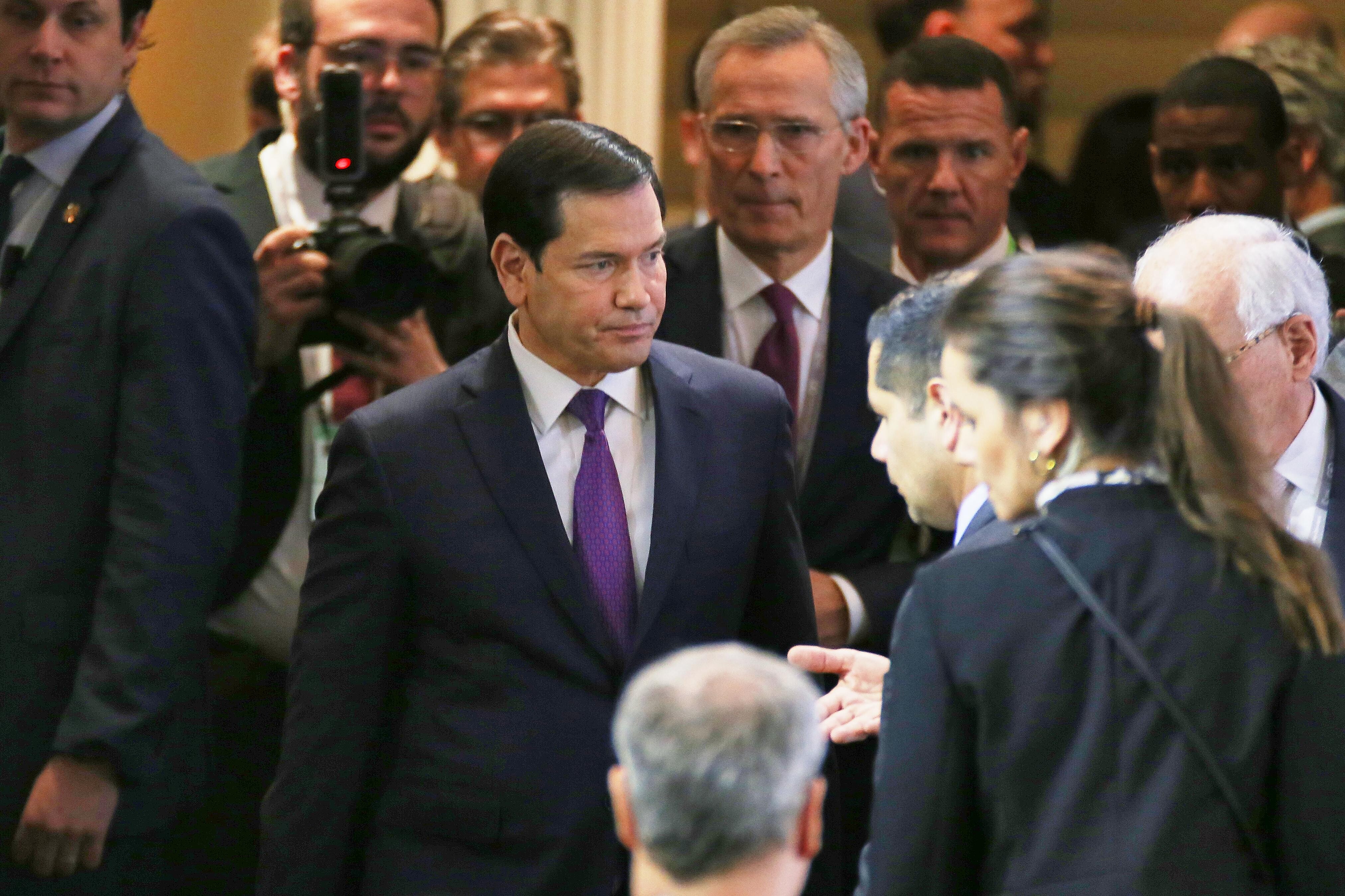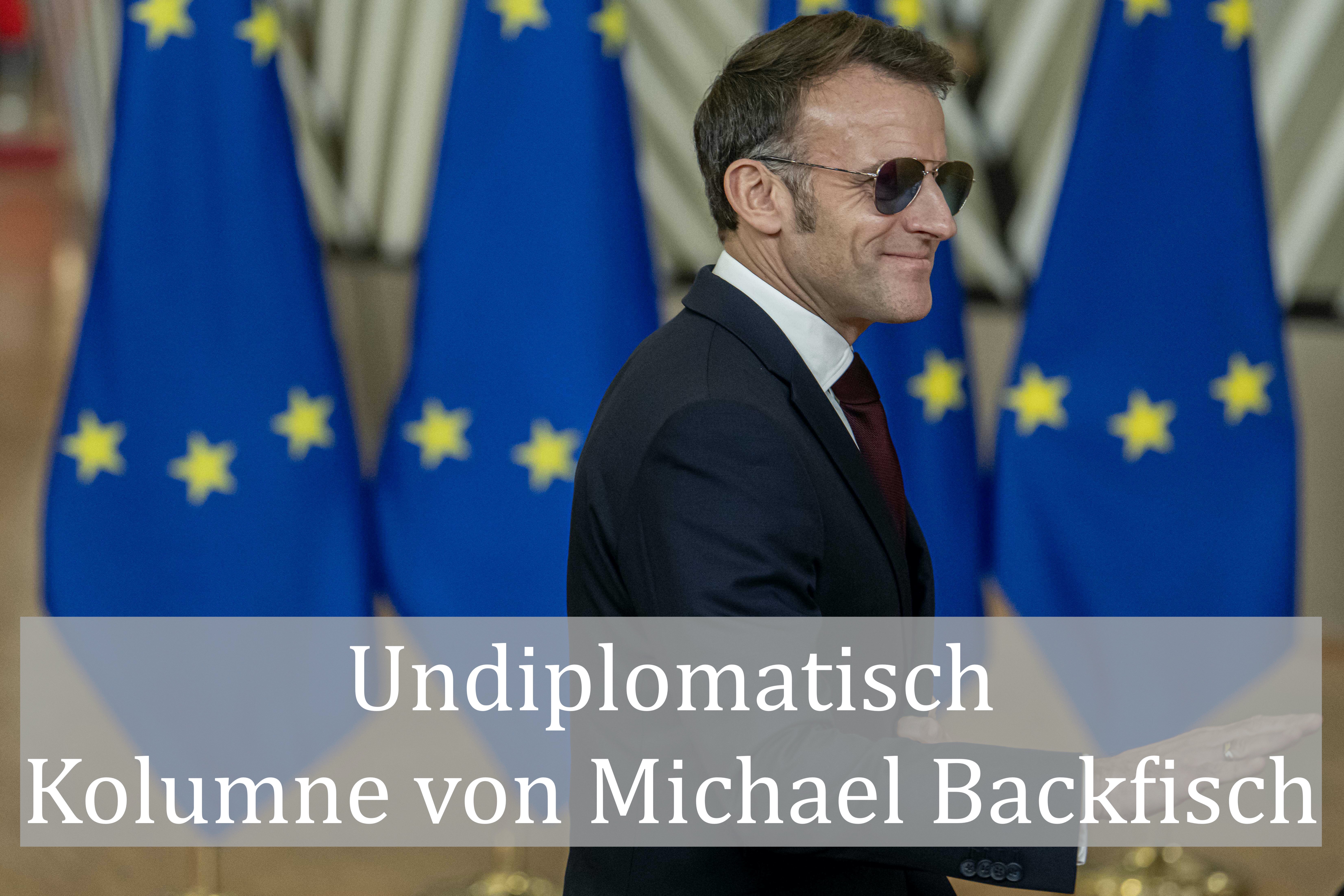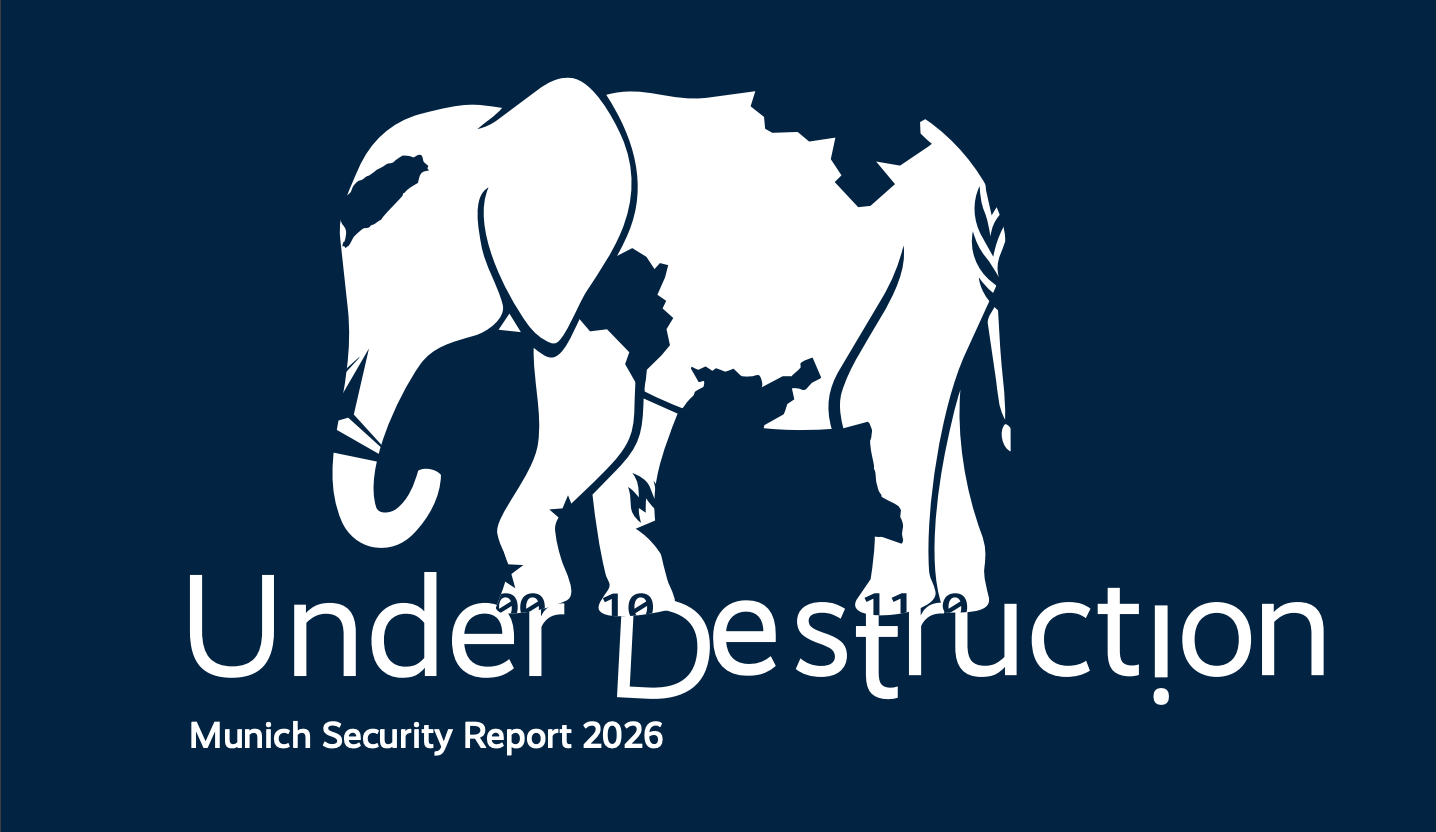diplo.news
From sauna to golf diplomacy
Interview by Gudrun Dometeit

What are your expectations of the foreign policy of the new federal government, particularly with regard to Ukraine? Is anything going to change there?
Statements by the new Federal Chancellor Friedrich Merz have raised expectations. Germany will certainly participate more in joint European leadership. Merz has a vacant place alongside Keir Starmer, Emmanuel Macron and Donald Tusk. And it concerns specific tactical questions, for example whether Germany actually supplies the Taurus missile defense system or in what form is it participating in the “coalition of the willing” in Ukraine. It will also be exciting to see how the relationship with the USA develops.
What exactly does more leadership mean to you?
Foreign policy in Germany, as in Finland, consists of the expectation of continuity. So in large parts, little is likely to change. Germany remains one of Europe's leading powers with global interests, for example a seat on the UN Security Council. But after a long phase in which there was no fully politically effective government, new momentum is now emerging again. At the same time, regions such as the Baltic Sea region have become more important, where there will be more intensive cooperation between the neighbors, in the economy, on energy issues, on security within the NATO framework, to protect critical infrastructure.
The new chancellor has indicated that he has fewer problems with the delivery of Taurus than his predecessor Olaf Scholz, who has always pointed out the risk of escalation. What do you think of that?
I don't want to comment on that so as not to come across as lecturing. But I would like to point out in this context a fundamental difference between our policy and that of Germany as regards the publication of support for Ukraine. In Germany - I've checked it - you can find the entire catalog of supplies on the Ministry of Defense website, from IRIS-T to Patriots to dental equipment. We in Finland are not announcing this. And the reasoning behind this is that we don't want to add unnecessary fuel to the fire. Why should you offer this information to your opponent?
Would a delivery of the Taurus be correct from a Finnish point of view?
We rely on the right of self-defense to prevent or ward off an attack. But I don't want to give instructions as to whether this weapon system should be delivered or not. However, the British and French have also had no problems handing over their own long-range weapons.
What do you understand by a coalition of the willing? Also a deployment of troops along the Ukrainian-Russian border?
It's all still open. First of all, we need a commitment from the Russian side to a ceasefire. And it doesn't exist yet, on the contrary. When we have reached this stage, we can talk about the modalities that guarantee a ceasefire, about the role of Western states as well as of a wider international community, about a possible deployment of troops.
Would Finland participate?
We need to look at this issue in a larger context. It is well known that we have a very long border with Russia. These 1340 kilometers also require attention.
That means you have to divide your forces. Finland is currently building a fence along the border.
The eight border crossings with Russia are protected by a fence so that refugees cannot cross them on the sides. It is not planned to build a continuous fence over 1340 kilometers. The border crossings have been closed for a long time — because of Russian hybrid measures, i.e. the instrumentalization of refugees, which the Russian side has pushed on in our direction.
Have there been such incidents recently?
It has calmed down and we assume that this is due to the Finnish measures.
In these days of the 80th anniversary, Germany is commemorating the end of the Second World War. Russia is celebrating it as a victory over National Socialist Germany. Soviet heroic memorials in parts of Berlin bear witness to this. You mentioned in a preliminary talk that you find that strange. However, Germany has now invaded the former Soviet Union. And history cannot be corrected by dismantling monuments. What is Finland doing with its own culture of remembrance?
The difference is that Finland was not occupied by the Soviet Union. We fought a defensive war and prevented us from being occupied. The Soviets have therefore not erected any monuments and we have nothing to dismantle. We see ourselves as victims. There is nothing to be ashamed of in our wars. It's just different in Germany. It was a perpetrator, not a victim. We later voluntarily erected some monuments during the Cold War to honor Finnish-Soviet friendship. That was at a time when there was still stability in the international system. This stability was shaken by the Russian war of aggression in Ukraine, which then also led to our NATO membership.
Finland has been in NATO for two years now. Was that the right move from a Finnish perspective?
In the short term, yes, but in the end, history will be able to judge it in 50 or 100 years. Sometimes the perspective changes. But it was actually relatively clear to us that the step had to be taken under the new circumstances, following Russia's attack on Ukraine.
Finland was known for its policy of neutrality and for how cleverly it handled the tensions of recent decades. Your country is now involved in all NATO processes and problems. They must now trust the US to defend other members in the event of an attack.
So far, the USA has given assurances that it will not call Article 5 of the NATO Treaty into question. In intergovernmental relations, you simply have to be able to rely on official positions.
Some experts warn that this summer could be the last peaceful one in Europe because of the threat of a new Russian attack on a NATO member state. As an immediate neighbour, is Finland worried about an attack? Is that realistic?
What would be achieved as a result? What would the other side's risk calculation be? The aim would probably be to test whether NATO is responding. If not, that would be good for the aggressor, but what if it was? Honestly, I'm not too worried about that. In Finland, as well as in the Baltic states and in Poland, on the eastern flank of NATO in general, they are relatively well positioned militarily. It would be pretty daring to attack there. What you can probably assume is further pinpricks against critical infrastructure.
With his erratic policy, is Donald Trump contributing more to the unity or dichotomy of Europe?
I think we've actually pulled together well over the past few months. And when it comes to trade policy, Europe has behaved responsibly, has not shown any hasty reactions, sought and also found contact with the Americans. Italian Prime Minister Meloni was in the USA recently, as was our President Alexander Stubb. He played golf with Donald Trump at Mar-a-Lago, on the same side, also successfully and held talks...
They engaged in golf diplomacy, so to speak.
That's right, we're expanding our spectrum from sauna diplomacy to golf diplomacy. You just have to use your strengths... That's probably real soft power.
And did it do anything? Do you know now what makes Trump tick?
Yes, it was useful because we had the opportunity to explain our position in detail.
Europe's common trade interests can be combined, but there is a lack of armaments. There is competition and fragmentation. Or are you seeing progress?
We are following what is happening here in Germany with great interest. All you have to do is look at Rheinmetall's share price! Our interest is that even smaller players like us can bring their skills and products to the European market and that there is no protectionism. In Finland, for example, we have Patria, a company that builds armoured personnel carriers. The second example is the 5G network. A majority of German networks are still operated by Huawei, although there are concerns. We have an alternative solution from Nokia. The Group is completely competitive in terms of quality — and price, but also in terms of delivery speeds. Is it in our western interest to drive our own market-oriented provider out of the market? Europe must also stand on its own two feet in the arms industry.
But Western countries are happy to buy US weapons, now even to ease transatlantic political relations. The wrong way?
I think there's a healthy mix. A larger part of our weapons is also American; we have also ordered F35 fighter jets. And we're not too worried that they won't work - keyword killswitch (covert mechanism that allows the functions to be disabled from outside). That would probably be pretty damaging to Lockheed Martin's business.
Helsinki was once the location for a historic event, namely the Conference on Security and Cooperation (CSCE) in Europe. This year marks the 50th anniversary of the signing of the CSCE Final Act. The Helsinki Process made a significant contribution to easing the Cold War — through dialogue and diplomacy. Would such a process be repeatable, or would it be followed by a long, long break?
It's hard to predict. Back then, Soviets and Americans supported the process; CPSU leader Leonid Brezhnev took part, as did US President Gerald Ford, as did East and West Germany. I doubt that it will be able to repeat itself like this, because the structures which lay down basic rules of coexistence are sufficient — with the UN Charter or the OSCE Charter of Paris of 1990. Since the beginning of the year, Finland has chaired the OSCE and I believe that our task now is to keep this organization alive, because Russia is questioning it. There were two important achievements of the Helsinki Conference: the confirmation of the former borders. It would be nice if we could set them again now, also for Ukraine, without 20 percent of its territory being called into question. And secondly, the importance of human rights. The opposition movements in the so-called Eastern Bloc have relied on the latter. German reunification also built on this. When you talk to experienced diplomats at the Federal Foreign Office about the CSCE, there is a strong connection.

Finland's ambassador Kai Sauer has represented his country in Berlin since 2023. He was born in Hamburg to a Finnish mother and a German father. The 58-year-old held various positions abroad, including in Croatia, Austria, Indonesia and the USA. From 2014 to 2019, he headed the Permanent Mission of Finland to the UN in New York. At the Ministry of Foreign Affairs, he was then also involved in preparing his country's NATO membership.




